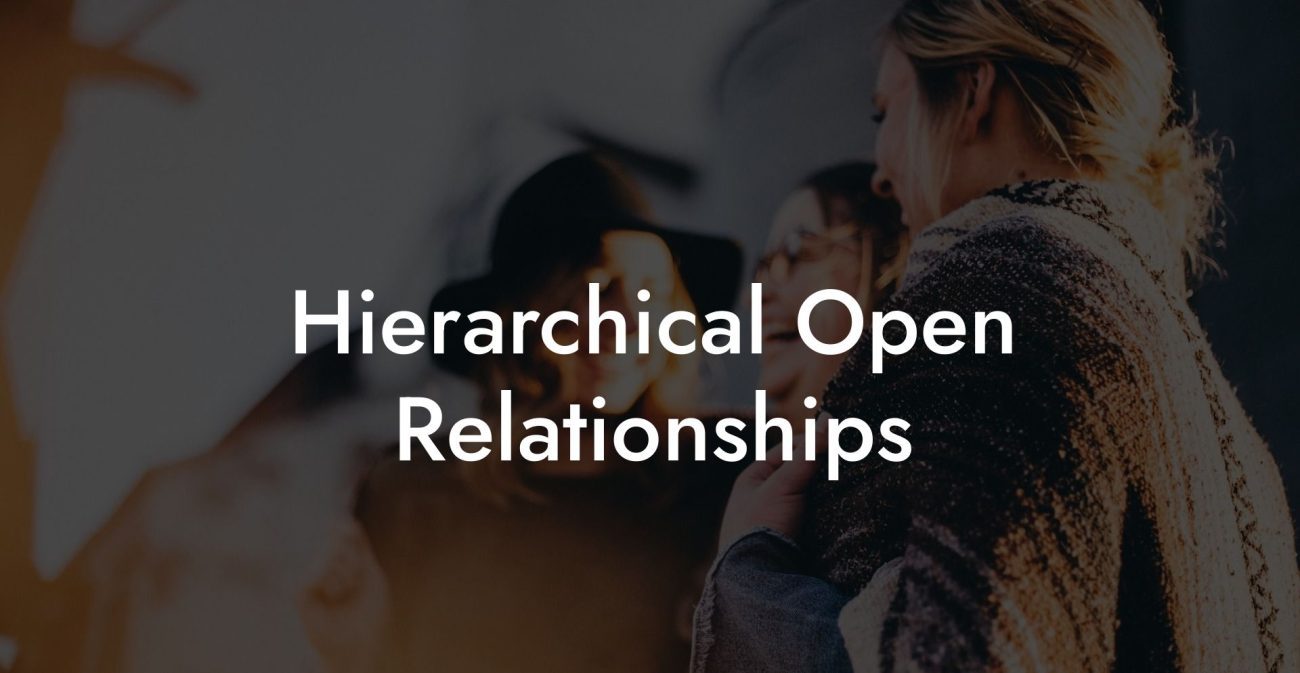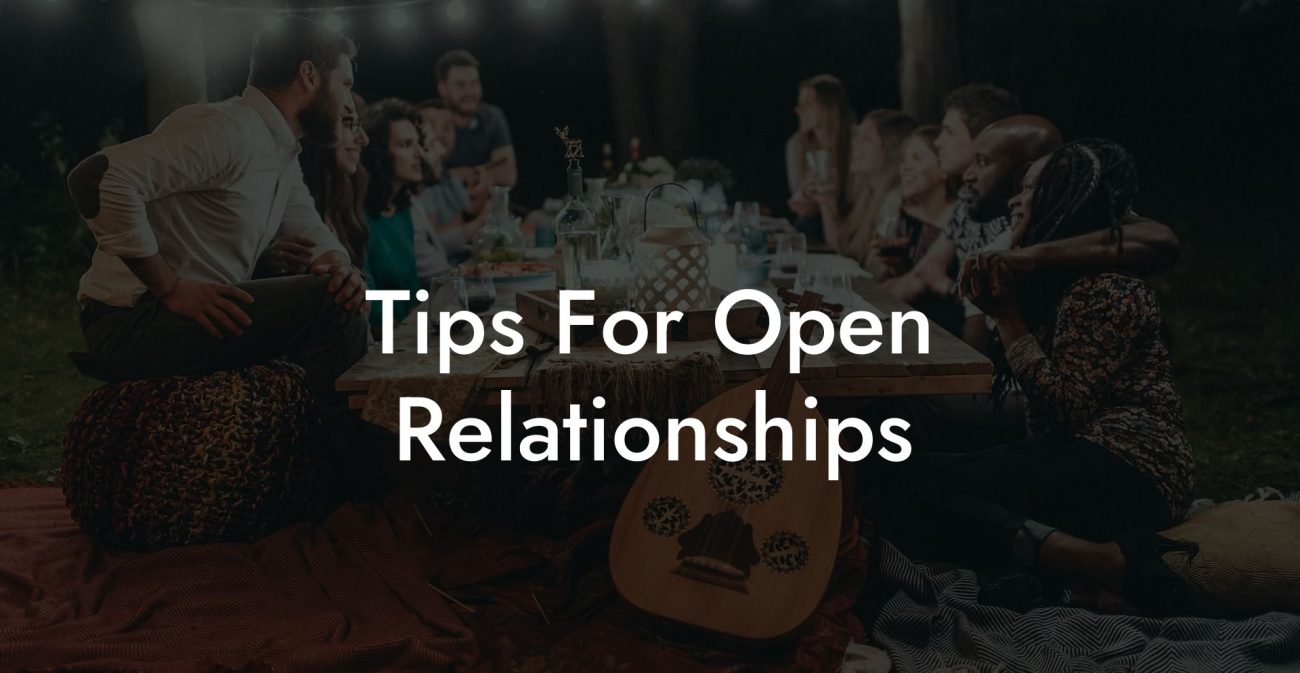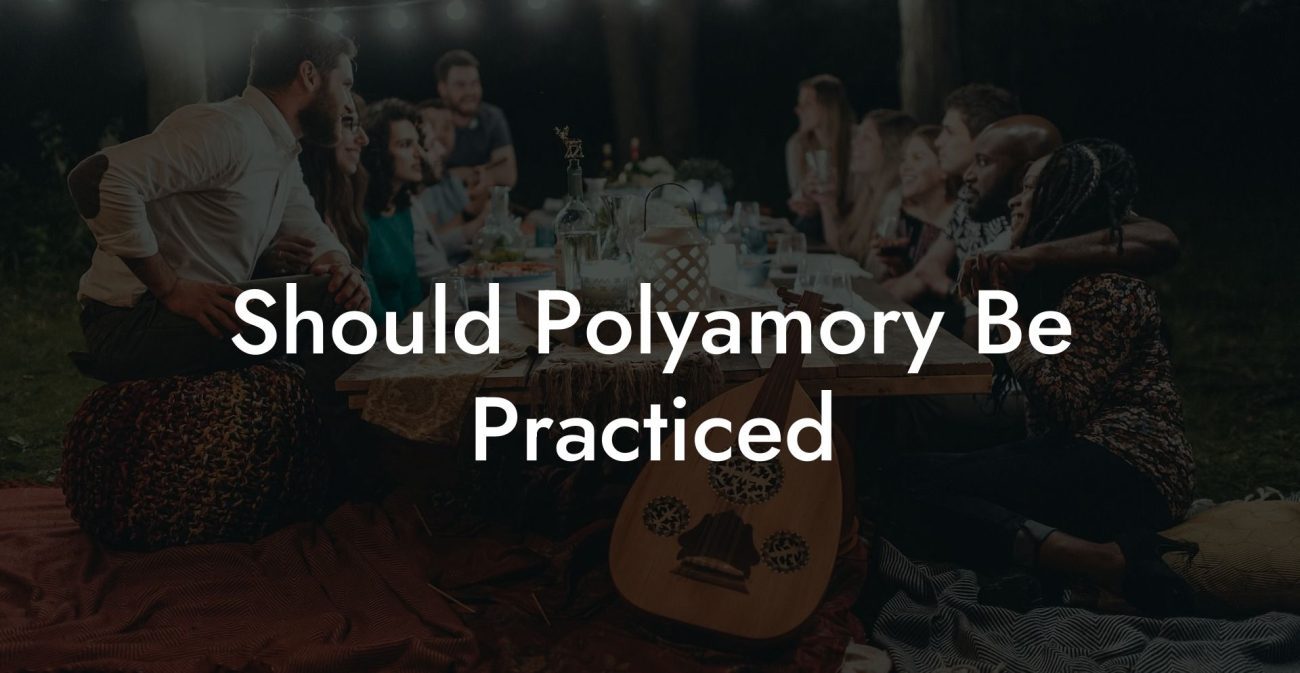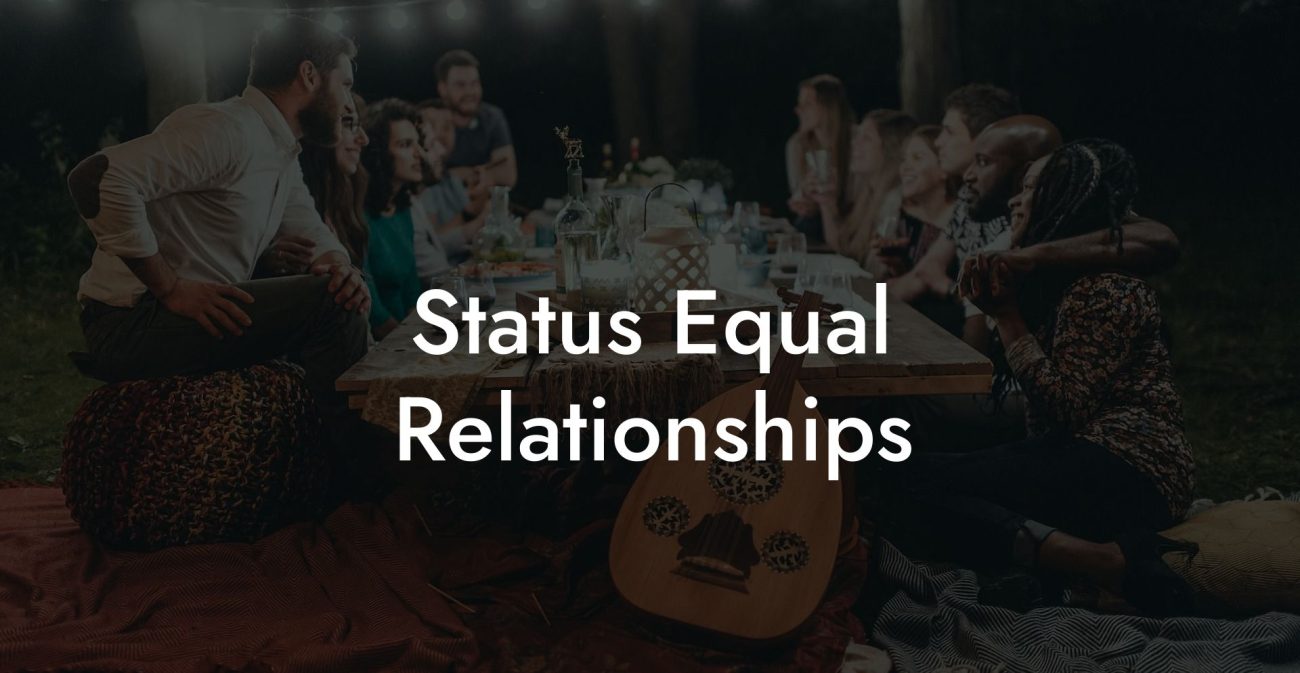Is Is An Open Relationship Beneficial?
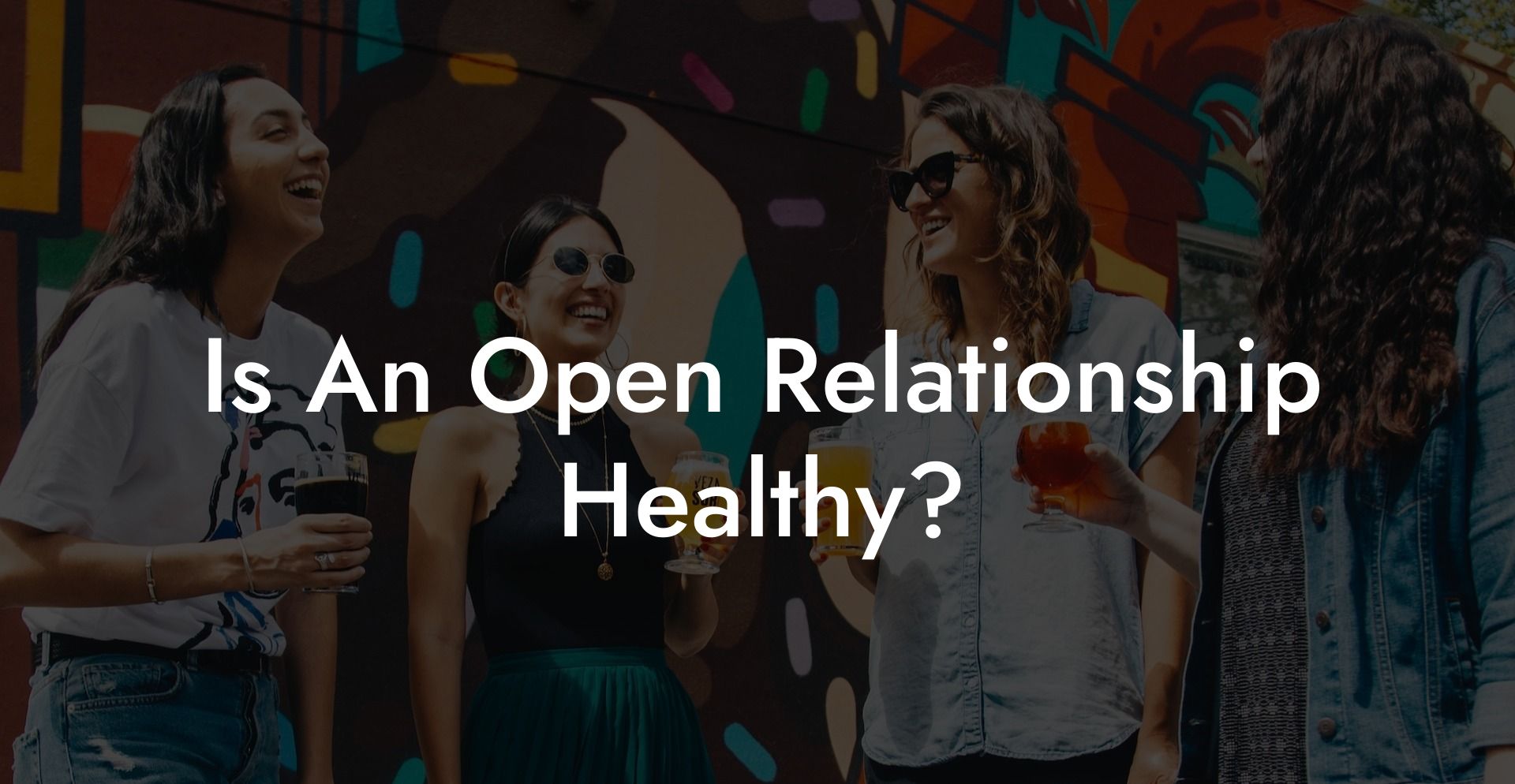
Open relationships, a form of consensual non-monogamy, involve couples who agree to engage in romantic or sexual relationships outside their primary partnership. While the idea may initially seem daunting, many people report that open relationships can lead to increased personal freedom, richer emotional connections, and enhanced communication skills. However, like any relationship model, open relationships also come with their own set of challenges. In this guide, we will explore the potential benefits and drawbacks, review psychological and emotional dimensions, and offer practical strategies for thriving in an open relationship.
Have you ever wondered if monogamy is just a stupid little experiment? Open relationships, polyamory, relationship anarchy...find out which relationship dynamic suits you best with our one minute relationship test. See if you are just conforming to "societal norms". Reveal your truth >>
Quick Links to Useful Sections
- What Is an Open Relationship?
- Defining Open Relationships
- Core Elements of an Open Relationship
- Potential Benefits of Open Relationships
- Diverse Emotional and Social Support
- Greater Personal Freedom and Autonomy
- Enhanced Communication and Relationship Skills
- Opportunities for Sexual and Romantic Exploration
- Challenges of Open Relationships
- Managing Jealousy and Insecurity
- Time Management and Balancing Priorities
- Social Stigma and External Judgment
- Emotional Complexity and Communication Issues
- Psychological and Emotional Considerations
- Emotional Intelligence and Self-Awareness
- The Importance of Trust and Vulnerability
- The Role of Professional Support
- Practical Strategies for Thriving in an Open Relationship
- Establish Regular Communication Protocols
- Set and Maintain Clear Boundaries
- Prioritize Self-Care and Personal Development
- Build and Engage with a Supportive Community
- Stay Informed and Adaptable
- FAQ: Your Are Open Relationships Beneficial Questions Answered
What Is an Open Relationship?
Defining Open Relationships
An open relationship is a consensual arrangement in which partners agree that they may have romantic or sexual relationships with people outside of their primary bond. Unlike monogamy, where emotional and sexual exclusivity is expected, open relationships are built on the principles of mutual consent, transparent communication, and negotiated boundaries.
In an open relationship, each partner retains the freedom to pursue additional connections while still prioritizing their primary relationship. This can take many forms, from couples who only share sexual encounters with others to those who develop deep emotional bonds with additional partners. The key factor is that all parties involved are fully aware of and agree to the arrangement.
Core Elements of an Open Relationship
- Consent and Transparency: Every participant must be informed and in agreement with the relationship dynamics, ensuring that no one feels coerced or excluded.
- Clear Boundaries: Partners establish guidelines for what is acceptable, including emotional, physical, and practical limits, to maintain trust and respect.
- Open Communication: Continuous, honest dialogue is essential to address feelings, manage conflicts, and adapt to changes in the relationship.
- Flexibility: The arrangement is often fluid, allowing relationships to evolve naturally as individual needs and circumstances change.
Potential Benefits of Open Relationships
Diverse Emotional and Social Support
One of the most frequently cited benefits of open relationships is the opportunity to build a diverse network of emotional and social support. In an open relationship, each partner can provide a different perspective, emotional care, and practical assistance. This can lead to:
- Richer Emotional Connections: With multiple sources of support, individuals often feel more understood and valued.
- Increased Resilience: A broader network can help buffer against stress, as partners may rely on each other during challenging times.
- Enhanced Social Interaction: Open relationships can foster a sense of community and inclusivity, connecting individuals with like-minded people who share similar values.
Greater Personal Freedom and Autonomy
Open relationships offer a high degree of personal freedom. Partners are free to explore their sexuality and form connections with others, which can lead to a greater sense of autonomy. This flexibility allows individuals to:
- Explore Personal Desires: Without the confines of exclusivity, partners can experiment with different aspects of their sexuality and emotional needs.
- Maintain Individual Identity: Retaining personal space and independence can foster a stronger sense of self, benefiting both personal growth and the relationship.
- Adapt to Change: Open relationships are inherently fluid, allowing partners to adjust their boundaries and connections as they evolve over time.
Enhanced Communication and Relationship Skills
Successful open relationships rely heavily on effective communication. Couples in open relationships often develop advanced communication skills as they negotiate boundaries, express needs, and work through complex emotions. Benefits include:
- Improved Conflict Resolution: Regular, honest conversations can help prevent misunderstandings and resolve conflicts before they escalate.
- Greater Self-Awareness: Open dialogue encourages individuals to reflect on their emotions and relationship expectations, leading to personal growth.
- Strengthened Trust: Transparency and honesty build a foundation of trust that can improve overall relationship satisfaction.
Opportunities for Sexual and Romantic Exploration
Open relationships often provide the freedom to explore new sexual and romantic experiences that might not be available in a monogamous arrangement. This exploration can lead to:
- New Discoveries: Partners may discover untapped aspects of their sexuality and deepen their understanding of their desires.
- Increased Sexual Satisfaction: Variety in sexual experiences can contribute to a more fulfilling and adventurous sex life.
- Diverse Romantic Connections: Engaging with multiple partners can offer a range of emotional and intellectual stimulation, enhancing overall relationship dynamics.
Challenges of Open Relationships
Managing Jealousy and Insecurity
Jealousy is one of the most common challenges in open relationships. When a partner sees their loved one connecting with someone else, it can trigger feelings of insecurity or inadequacy. Strategies for managing jealousy include:
- Open Dialogue: Regularly discuss feelings of jealousy with your partner to understand the underlying issues and find solutions together.
- Mindfulness Practices: Techniques such as meditation and journaling can help you manage emotions and build resilience.
- Therapy or Counseling: Professional guidance can provide tools to cope with jealousy and foster emotional well-being.
Time Management and Balancing Priorities
With multiple relationships, coordinating time and energy becomes a challenge. Ensuring that all partners receive adequate attention requires:
- Effective Scheduling: Use shared calendars and planning tools to organize time spent with each partner.
- Setting Priorities: Clearly define your priorities and communicate them to your partners to avoid misunderstandings.
- Flexibility: Be willing to adjust your schedule as needed to accommodate changing circumstances and ensure that no one feels neglected.
Social Stigma and External Judgment
Despite increasing acceptance, open relationships may still face social stigma and misunderstanding from friends, family, or society at large. These external pressures can create stress and affect self-esteem. To mitigate these challenges:
- Build a Support Network: Surround yourself with like-minded individuals who understand and support your lifestyle.
- Educate Others: When appropriate, share information about open relationships to help dispel myths and reduce stigma.
- Stay True to Your Values: Focus on what works for you and your partners rather than conforming to external expectations.
Emotional Complexity and Communication Issues
Open relationships can introduce complex emotional dynamics that require constant attention. Miscommunication, unmet expectations, and differing needs can lead to conflicts. Address these issues by:
- Regular Check-Ins: Schedule consistent discussions to assess the health of your relationships and adjust boundaries as needed.
- Active Listening: Ensure that all partners feel heard by practicing active listening and validating each other’s experiences.
- Conflict Resolution Strategies: Develop clear strategies for resolving conflicts, such as using “I” statements and seeking mediation if necessary.
Psychological and Emotional Considerations
Emotional Intelligence and Self-Awareness
Navigating the complexities of an open relationship requires high levels of emotional intelligence and self-awareness. These skills enable you to:
- Recognize your own emotional triggers and manage them effectively.
- Communicate your needs clearly and empathize with your partners.
- Develop strategies to manage negative emotions such as jealousy and insecurity.
The Importance of Trust and Vulnerability
Trust is the foundation of any successful open relationship. Building and maintaining trust involves being vulnerable, honest, and consistent in your actions. Vulnerability, while challenging, can lead to deeper intimacy and stronger bonds.
The Role of Professional Support
For many individuals, the challenges of open relationships can be mitigated by seeking professional support. Therapists and counselors who specialize in relationship dynamics can offer personalized strategies and help you develop the skills needed to navigate complex emotions.
Practical Strategies for Thriving in an Open Relationship
Establish Regular Communication Protocols
Regular communication is key to ensuring that all partners feel valued and understood. Consider these practices:
- Scheduled Check-Ins: Arrange weekly or monthly meetings, either individually or as a group, to discuss relationship dynamics, address concerns, and update boundaries.
- Use Digital Tools: Utilize shared calendars, group chats, and video calls to maintain constant communication and coordinate schedules.
- Active Listening: Practice techniques such as reflective listening and nonviolent communication to ensure that everyone’s perspective is heard.
Set and Maintain Clear Boundaries
Clear boundaries help prevent misunderstandings and ensure that everyone’s needs are met. Create a written or digital agreement that outlines:
- Time allocation for individual and group interactions.
- Guidelines for sexual health and safe practices.
- Emotional boundaries and expectations for communication.
- Protocols for handling conflicts or emotional challenges.
Revisit and update these boundaries regularly as your relationships evolve.
Prioritize Self-Care and Personal Development
A strong focus on self-care can help maintain your emotional and physical well-being. Strategies include:
- Establishing a daily self-care routine that includes exercise, mindfulness practices, or hobbies.
- Scheduling personal time to recharge and focus on your individual growth.
- Seeking professional counseling if needed to build resilience and manage stress.
Build and Engage with a Supportive Community
Connecting with others who share your lifestyle can provide valuable emotional support and practical advice. Consider:
- Joining online forums such as r/polyamory and social media groups dedicated to open relationships.
- Attending local meet-ups, workshops, or webinars on ethical non-monogamy.
- Participating in peer support groups to share experiences and learn from others.
Stay Informed and Adaptable
The landscape of relationships is constantly evolving. Keep up-to-date with the latest data-statistics-ethical-non-monogamy-open-relationships-polyamory/" target="_blank">research, books, podcasts, and workshops on open relationships and ethical non-monogamy. Continuous learning will help you adapt to changes in your relationships and refine your approach.
- Read influential books like "The Ethical Slut" by Dossie Easton & Janet Hardy and "More Than Two" by Franklin Veaux & Eve Rickert.
- Listen to podcasts such as "Multiamory" and "Polyamory Weekly."
- Engage with academic articles and research on the benefits and challenges of open relationships.
FAQ: Your Are Open Relationships Beneficial Questions Answered
1. Are open relationships beneficial?
Open relationships can be highly beneficial for individuals who value personal freedom, diverse emotional support, and the opportunity for personal and sexual exploration. They encourage improved communication, self-awareness, and flexibility, leading to enriched intimacy and personal growth.
2. What are the main benefits of open relationships?
Benefits include access to multiple sources of emotional support, increased personal autonomy, enhanced communication skills, and the ability to explore various forms of intimacy and sexual expression.
3. What challenges might arise in open relationships?
Common challenges include managing jealousy and insecurity, balancing time and emotional energy among multiple partners, and dealing with societal stigma or misunderstandings about non-monogamy.
4. How can couples improve communication in open relationships?
Communication can be improved through regular check-ins, active listening, nonviolent communication techniques, and the use of digital tools like shared calendars and group chats to coordinate schedules and share updates.
5. What role does self-care play in open relationships?
Self-care is essential for maintaining personal well-being, which in turn supports healthy, resilient relationships. Prioritizing self-care helps manage stress, fosters personal growth, and ensures that each partner can contribute positively to the overall dynamic.
6. Where can I find additional resources on open relationships?
Additional resources are available through books such as "The Ethical Slut" and "More Than Two", podcasts like "Multiamory" and "Polyamory Weekly," and online communities such as r/polyamory.
Resources and Community Support: Your Next Steps
- "The Ethical Slut" by Dossie Easton & Janet Hardy – A seminal work exploring ethical non-monogamy, offering insights into building and sustaining open relationships.
- "More Than Two" by Franklin Veaux & Eve Rickert – A comprehensive guide providing practical advice on managing multiple relationships and navigating open relationship dynamics.
- Podcasts: Listen to "Multiamory" and "Polyamory Weekly" for engaging discussions and personal stories about the benefits and challenges of open relationships.
- Online Communities: Join forums such as r/polyamory and specialized Facebook groups to exchange experiences and gain support.
- Workshops and Webinars: Attend events focused on ethical non-monogamy and relationship dynamics to expand your knowledge and connect with like-minded individuals.
By exploring these resources and applying the practical strategies outlined in this guide, you can make an informed decision about whether an open relationship is beneficial for you. Embrace continuous learning, open communication, and dedicated self-care as you navigate this dynamic and evolving approach to intimacy and connection.
Lost & confused by all of the terms, types and seemingly made up 3 letter acronyms?? We've got you. Check out our Ethnical Non-Monogamy Dictionary >>
Useful Interruption: Not sure which relationship vibe fits you best? Take our Relationship Test, it’ll give you the real insight into your natural relationship style. Then, dive into our binge-worthy guides (from the tried-and-true to the “wait, that’s a thing?”) and find the perfect relationship type for your life:
- Monogamy
- Open Relationships
- Ethical Non-Monogamy
- Solo Polyamory
- Non-Hierarchical Polyamory
- Hierarchical Polyamory
- Relationship Anarchy
- Swinging
Now back to the main article but yeah take the test...

